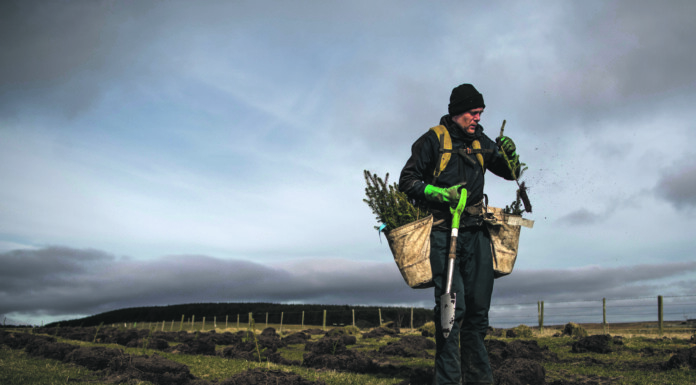Up to 23 more farms could be sold to become permanent carbon forests, according to Masterton District Councillor David Holmes.
In the final council meeting for 2022, Holmes sought to draw attention to the growing number of farms in the region set to go to market.
He said the potential conversions would affect the council.
“In this district alone lately 100,000 stock units have gone to forestry. Revenue from that amount of properties is approximately $50 million when [stock] prices were really good.”
Part of the revenue from farming paid for MDC and Greater Wellington Regional Council rates, he said.
“I just wanted you to remind them [Wellington councillors] that that’s the reality of carbon farming as opposed to normal forestry.”
Holmes said Wairarapa farmers were selling up, but land prices for farming were beginning to fall.
“Everyone is a bit anxious about the forestry.”
No further comments about the issue were made at the meeting.
Wairarapa farmer Mike Butterick said many farm sales hadn’t been confirmed and were subject to OIO approval.
“For one, the takeover isn’t until next winter.”
He said there was a shortage of trees, and many wouldn’t be planted for two to three years and were sitting empty after the sale.
Butterick said local speculation about sales typified what people had been witnessing for the past few years.
“The tragic part of that is that it highlights the advantage that carbon provides when compared to existing land use options.”
In June last year, the Times-Age reported a second farm, Birch Hill, was sold to an Austrian company with the reported purpose of becoming permanent forestry. By May 2021, the Overseas Investment Office [OIO] confirmed that six Wairarapa farms had been sold for forestry, but it did not confirm if it was for or carbon capture purposes.
An OIO decision confirmed that Birch Hill, a 1500-hectare South Wairarapa farm, had been sold to Austrian company Cerberus Vermogensverwaltung for forestry.
“The applicant intends to convert the land to a plantation forest over approximately 1138ha of the land best suited to planting,” the OIO decision said.
“The remaining land will be allocated to infrastructure, native plantings, and various setbacks.”
The OIO had already approved the purchase of Birch Hill earlier this year.
The sale came after Earlyhurst, a 944-hectare sheep and beef farm near Masterton, sold to the same company for more than $15 million earlier this year.
The OIO withheld the asset value of Earlyhurst under a section of the Official Information Act that stated the information “would be likely to unreasonably prejudice the commercial position of the person who supplied or who is the subject of the information”.
The Times-Age previously tried to confirm the sales of other properties for the purpose of carbon forestry, but the OIO was unable to provide details as they may not have been sold to international buyers.
Butterick said it was hard to prove the purpose of sales if they were sold to domestic buyers.
In February 2022, associate Forestry Minister David Parker announced changes to the Overseas Investment Act, making sure that proposals by overseas investors to acquire land for conversion to production forestry will be considered under the Benefit to New Zealand test, rather than under the streamlined ‘special forestry test’.
The change only applied to forestry conversions, such as where overseas investors looked to acquire existing farmland for planting into a new forest.
“Our overseas investment screening regime recognises what a privilege it is to own sensitive New Zealand assets,” Parker said.
The changes came into force on August 16.
Meanwhile, Wairarapa MP Kieran McAnulty has been working to make permanent forestry an activity that would require consent from local councils.
McAnulty’s work on the bill began before he was appointed Associate Minister of Local Government.
The change would make it easier for locals to track and decide where permanent forestry could be placed.
Wairarapa MP Kieran McAnulty gave a fiery speech for the first reading of the Overseas Investment Forestry Amendment Bill on June 11 last year, accusing the National Party of doing “bugger all” for rural communities.
While responding to concerns recently aired by National Party member David Benett, McAnulty said that if nothing was done to fix the carbon forestry issue, parts of the Wairarapa electorate, such as Pongaroa, would continue to be converted to carbon forestry.
He said the settings of the Emissions Trading Scheme were to blame.
Treasury said the main proposal in the Overseas Investment Forestry Amendment Bill was to ensure that the conversion of land to production forestry by overseas investors continued to bring broad benefits to New Zealand when consent is required under the act.
It said the special forestry test, as mentioned by Bennett, had never applied to carbon forestry which must meet the act’s more stringent test; “and the bill does not change this position”.
The amendment bill became law on August 15 last year.


